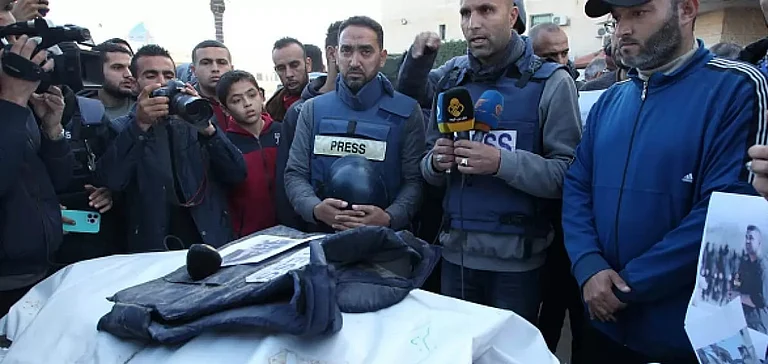1: Pope Leo, continuing the legacy of Pope Francis, has repeatedly called for an immediate and lasting ceasefire in Gaza, the release of hostages and unrestricted humanitarian aid.
2: Succeeding Pope Francis in May 2025, Pope Leo emphasizes unity, and continuity on global issues such as war, migration, poverty, and the environment.


